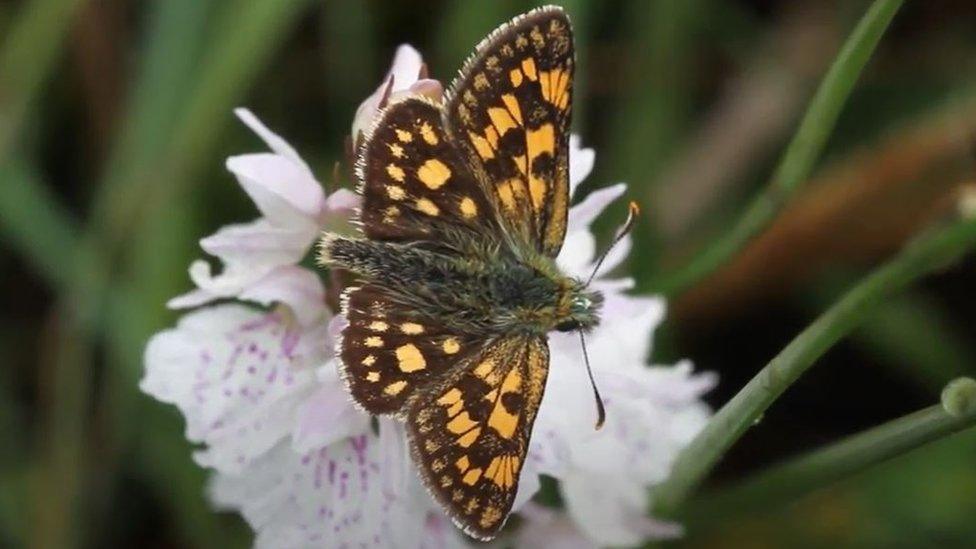Big Butterfly Count: Sightings worryingly low, say UK conservationists
- Published
- comments
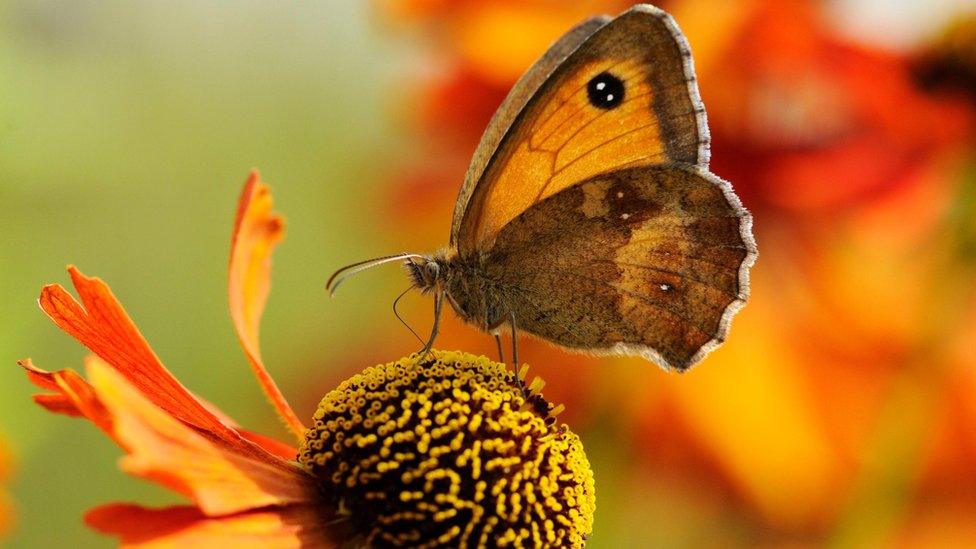
The Gatekeeper, a species often found along hedgerows and in woodland, was the most spotted butterfly during this year's count
Butterfly sightings are "worryingly low" and continuing to decline, UK conservationists have warned.
This year's Big Butterfly Count saw the lowest number of sightings recorded in the 13 years since the project began.
Wildlife charity Butterfly Conservation said it expected this year's warm summer to result in better figures, and is concerned that more were not seen.
Almost 100,000 butterfly counts were submitted as part of one of the UK's biggest citizen-science projects.
Dr Richard Fox, the head of science at the organisation, has called for more to be done to protect and restore butterfly habitats.
"The sun could shine for days on end, but we still won't see more butterflies unless there is habitat for them to thrive in," he said.
The Big Butterfly Count is backed by famous faces including Joanna Lumley and Sir David Attenborough.
It asks people across the UK to record the number and types of butterflies they saw in gardens, parks and in the countryside during a three week period in July and August.
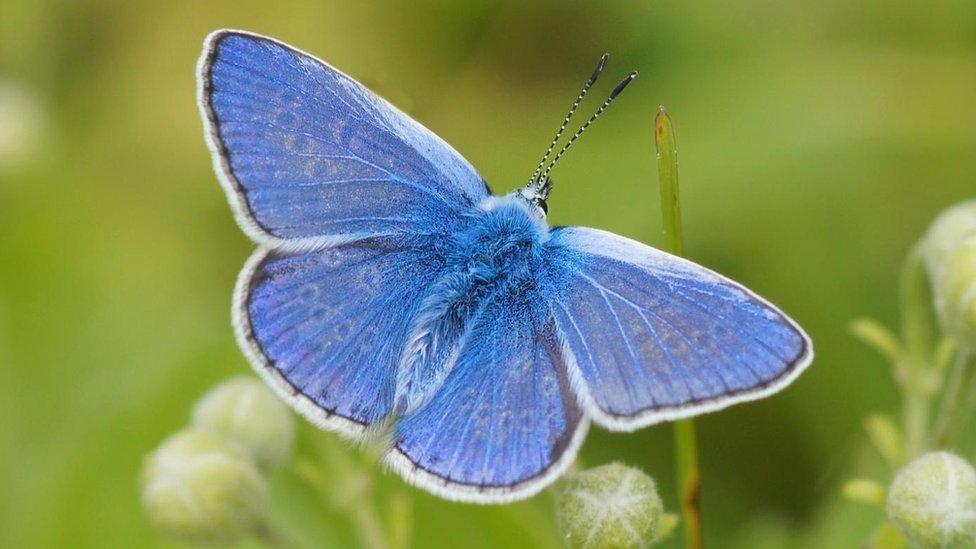
The Common Blue butterfly was one of the summer's winners
The results allow scientists to gather information on how moths and butterflies are affected by environmental changes.
The suggest Britons grow holly, flowering ivy, elms and nettles in their gardens to create habitats that allow butterflies space to feed, breed and shelter.
Although overall numbers are down, this year has seen some notable success stories including the Holly Blue, which had only occasionally been recorded in Scotland prior to the 2000s.
The Holly Blue has seen increases of 120% compared with last year, and has now spread across swathes of Scotland.
This year's unusually warm summer is thought to be behind the increased sightings of other species like the Common Blue - up 158%, and the Gatekeeper - up 58%.
And sightings of the Comma, a species often found in gardens, increased by 95% compared with last year.
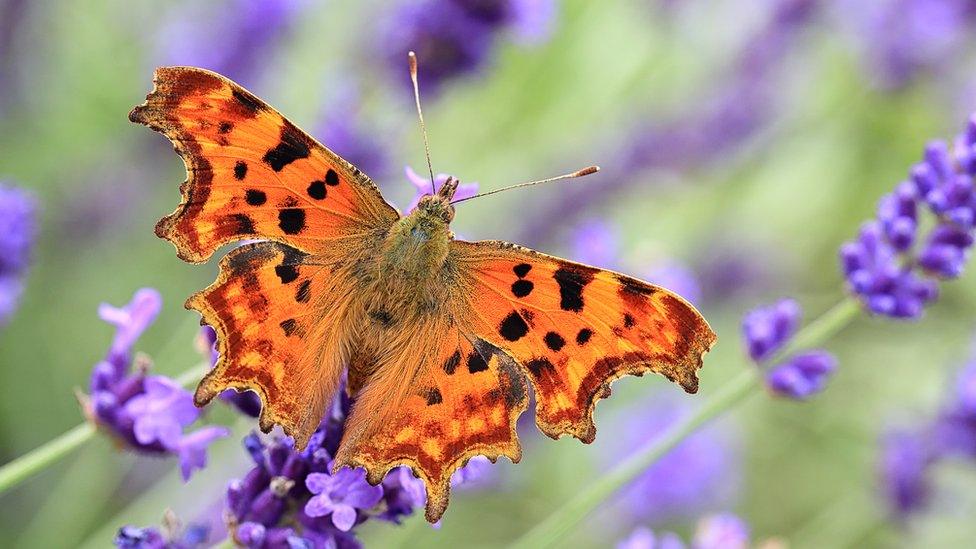
The Comma had been in decline, but is now widespread in southern Britain
The Large Blue declared extinct in the 1970s, enjoyed one of its best summers in 150 years.
The result of a conservation project led by the Royal Entomological Society, scientists say the success story shows how species can be saved from extinction.
And sightings of the Comma, a species often found in gardens, increased by 95% compared with last year.
Related topics
- Published25 August 2022
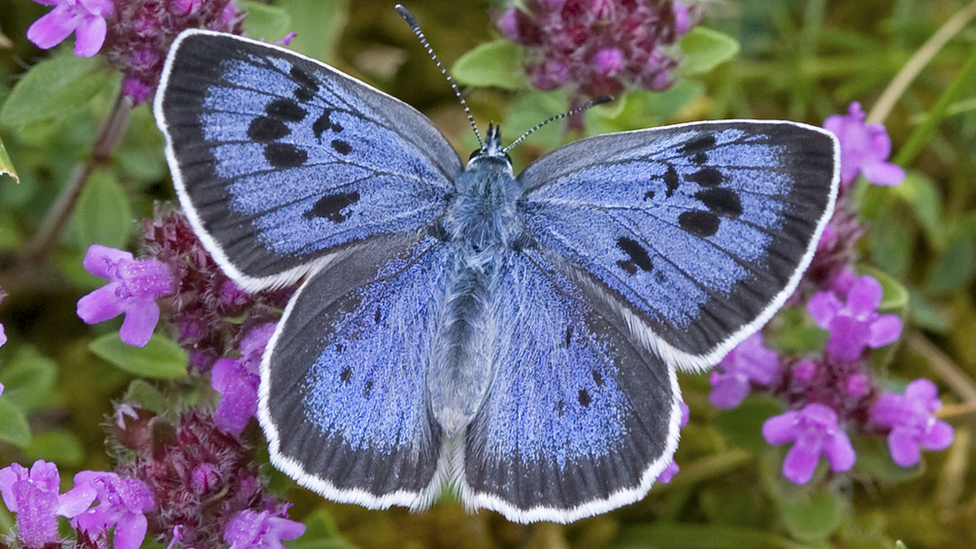
- Published26 May 2022
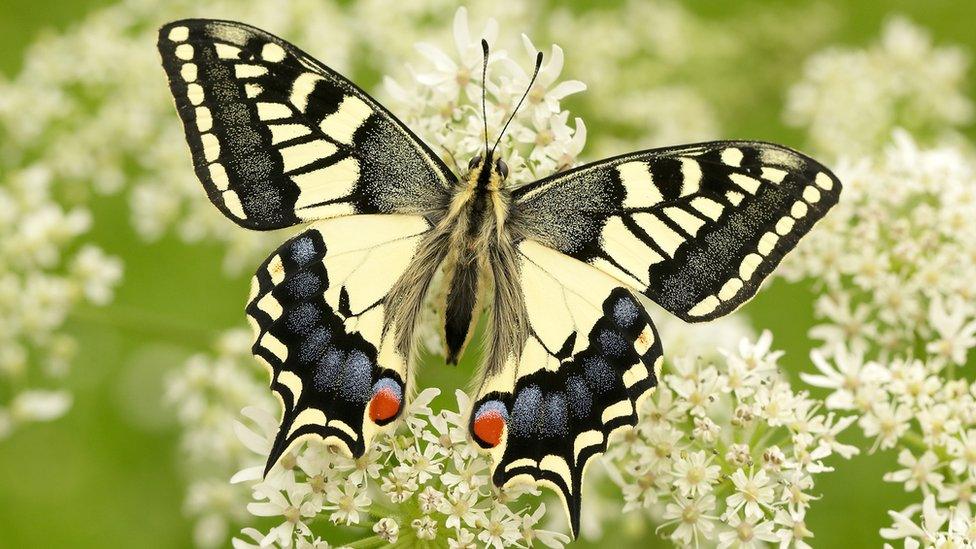
- Published27 January 2022
